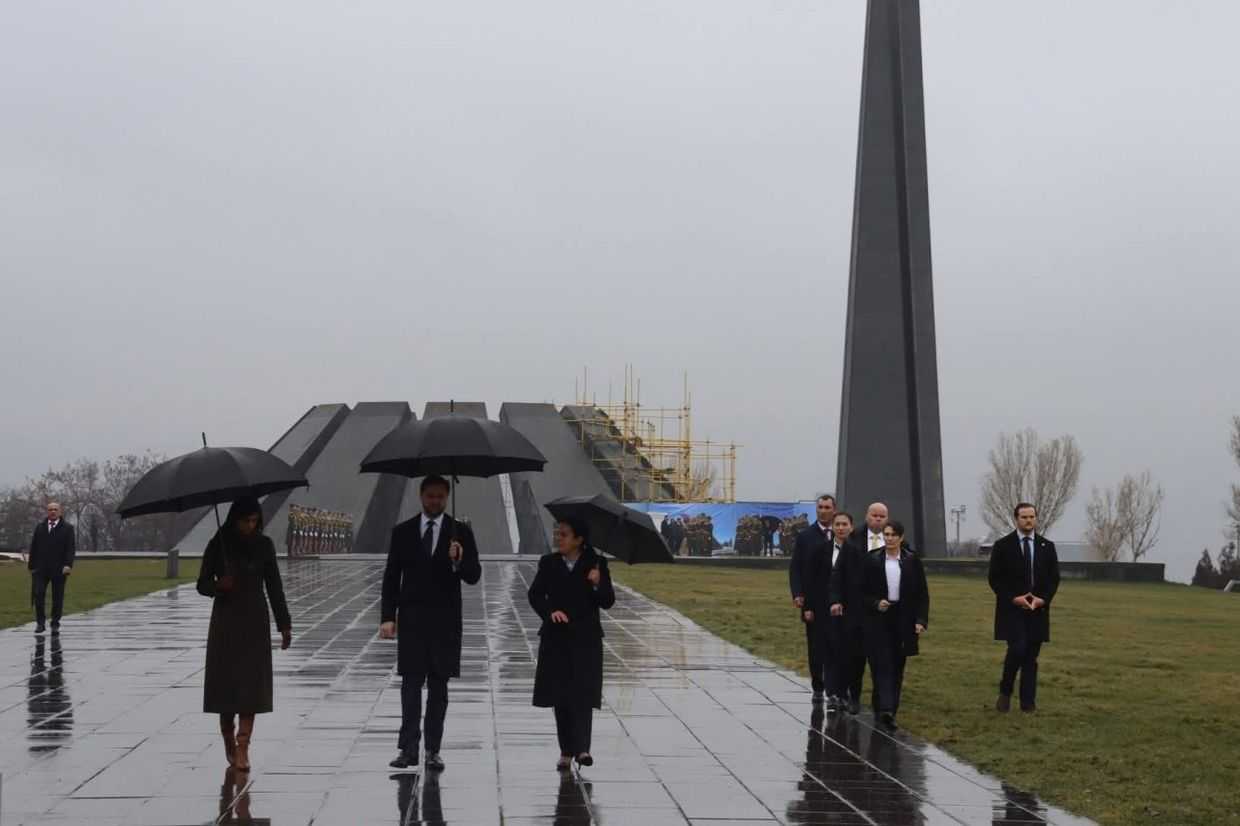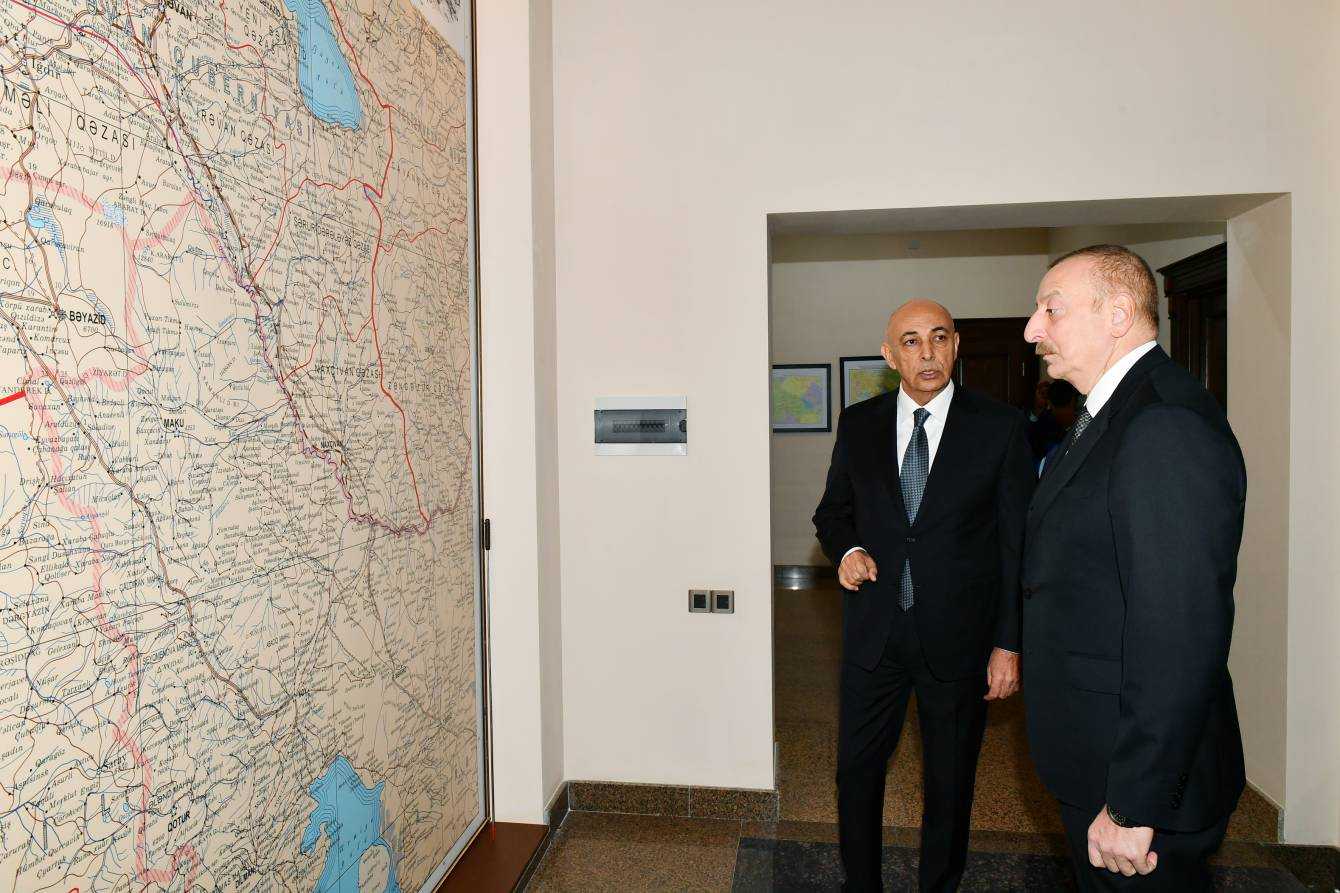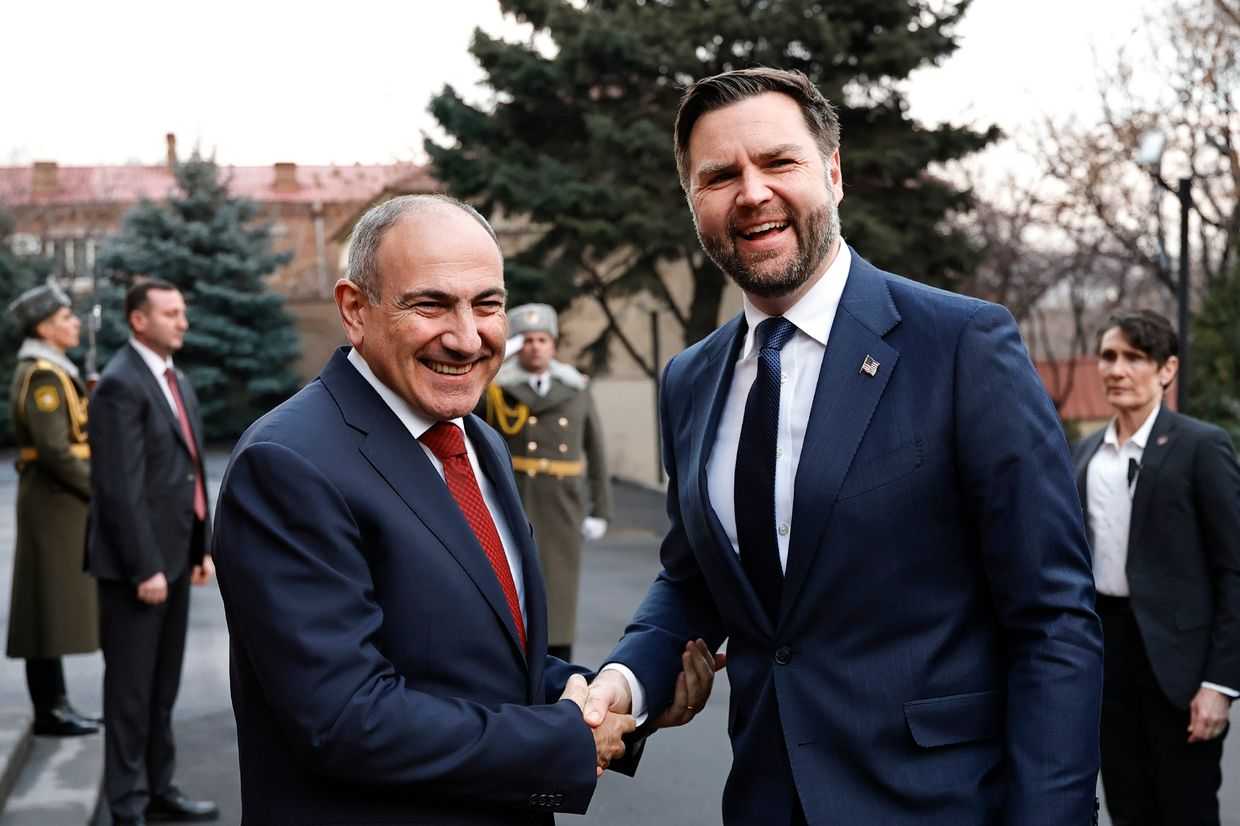
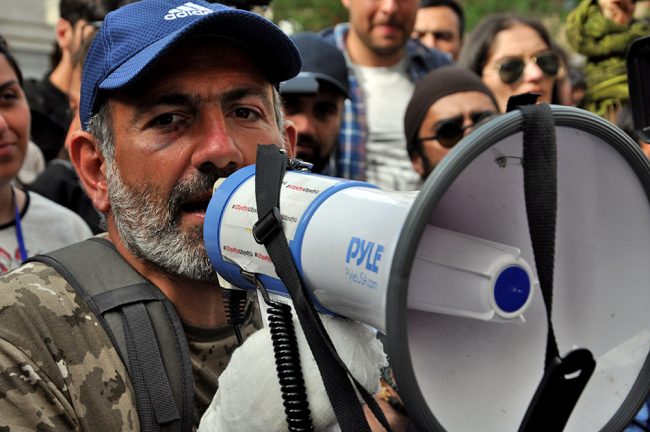
 Nikol Pashinyan and several other leaders of protests in Armenia against Serzh Sargsyan’s appointment as prime minister have been detained by police. Sargsyan walked out of a meeting with Pashinyan in front of journalists Sunday morning, calling it ‘blackmail’.
Nikol Pashinyan and several other leaders of protests in Armenia against Serzh Sargsyan’s appointment as prime minister have been detained by police. Sargsyan walked out of a meeting with Pashinyan in front of journalists Sunday morning, calling it ‘blackmail’.
Police used stun grenades and made mass arrests on Sunday afternoon in the 10th day of protests against Serzh Sargsyan’s appointment. Tens of thousands continued to demonstrate in the streets in a campaign of civil disobedience, blocking several roads and intersections with chants of ‘free Nikol’ heard. At least 192 people have so far been arrested, according to CivilNet.
Pashinyan, an MP and leader of the opposition Civil Contract party, had emerged as the leading figure in the protests. MPs Sasun Mikaelyan and Ararat Mirzoyan, also from the Civil Contract party were also detained Sunday. RFE/RL quoted police as denying the opposition leaders had been detained, saying the three ‘were forcibly taken from the site’ of an ‘illegal rally’. They were later charged with violating the Law on Freedom of Assembly, according to EVN Report.
Nikol Pashinyan being detained (CivilNet)
Following his detention, Pashinyan called on the public to continue to protest, saying Sargsyan’s resignation was ‘close’. He also called on ministers, heads of government bodies, and police chiefs to resign in protest.
On Saturday, one of the protest organisers, Armen Grigoryan, was detained by masked police officers while meeting with friends at a café in central Yerevan.
Stepan Grigoryan, head of the Analytical Centre for Globalisation and Regional Cooperation, an Armenian think-tank, told OC Media on 16 April that the ‘authorities will use force and all their resources to stop the protesters’, in order to ‘preserve their corrupt and undemocratic regime’. Grigoryan was himself detained by police on Sunday while attending a rally, the organisation said.
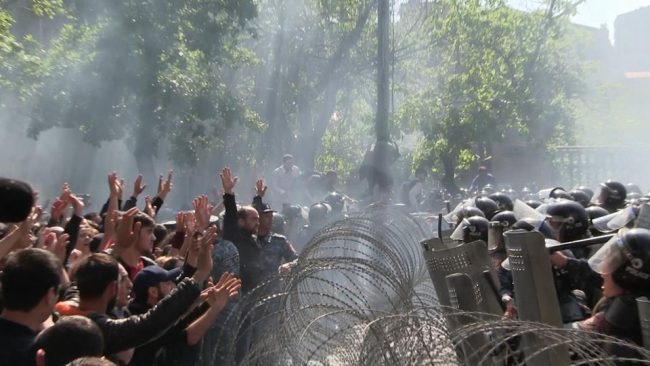
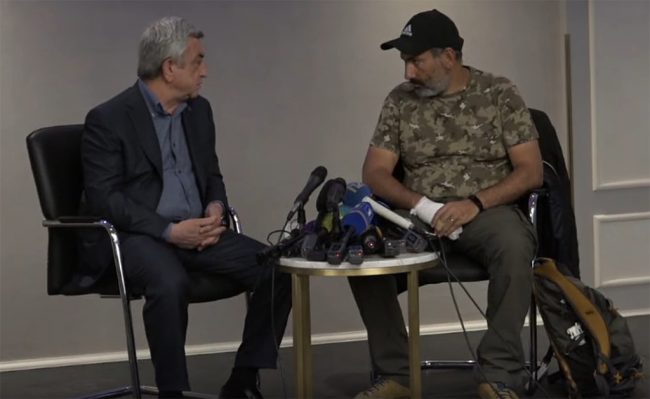
The EU’s External Action Service called on the authorities Sunday afternoon to release ‘all those who have been detained while exercising their fundamental right of assembly’. ‘The European Union expects the Armenian authorities to fully respect this right and to apply the law in a fair and proportionate manner, in accordance with Armenia’s international obligations, including in particular under the European Convention on the Protection of Human Rights and Fundamental Freedoms’, their statement said.
Sargsyan met with Pashinyan in Yerevan’s Marriott hotel on Sunday morning in a meeting that lasted just three minutes, according to CivilNet. Pashinyan reportedly told Sargsyan and the watching press he had ‘very clearly stated […] we’re not talking about dialogue, as you proposed […] but the terms of your resignation and the terms of a peaceful and smooth transition of power.’
Sargsyan responded that this was ‘blackmail’, adding that Pashinyan had ‘not learned from the events of 1 March [2008]’. In March 2008, peaceful protests against Sargsyan’s disputed election as president were forcibly dispersed by the authorities, resulting in the deaths of 10 people, both during the protests and in the following days. A case against the government of Armenia over the violence is still pending at the European Court of Human Rights.
[Read on OC Media: As thousands rally for a ‘Velvet Revolution’ — Serzh Sargsyan is not yet relinquishing his grasp on power]
Attacks on journalists
On Friday, international rights group Reporters Without Borders reported that ‘several journalists’ had been attacked while covering the protests, and called on the authorities to ‘show restraint, ensure press freedom is respected, [and] swiftly investigate all abuses.’ On Sunday, they reported that more journalists had been attacked, calling on the international community to ‘pay attention’.
Several #journalists attacked while covering #RejectSerzh demonstrations in #Armenia this week. We call on the police to show restraint, ensure #pressfreedom is respected, swiftly investigate all abuses. #YerevanProtests pic.twitter.com/94OzO3YYfH
— RSF_EECA (@RSF_EECA) April 20, 2018
A journalist from the Union of Informed Citizens NGO was reportedly beaten up in Yerevan on Thursday. ‘Two plainclothes police officers just beat up our journalist Tirayr Muradyan close to the third government building (Tirayr was wearing his badge). The uniformed police officers at the site did not intervene’, Panorama.am quoted the programmes director of the union, Daniel Ioannisyan, as saying.
Arus Hakobian, a correspondent for RFE/RL’s Armenian service Azatutyun, was attacked near Artashat, 30 kilometres south of Yerevan, on Saturday, according to Azatutyun. Police at the scene did nothing to prevent the attack, despite Hakobian calling for help, Azatutyun reported.
In a separate incident, a producer for Azatutyun was reportedly beaten up by police officers in Yerevan on Saturday night. According to Azatutyun, Anatoly Yeghiazarian was pushed to the ground, punched, and kicked by police as he attempted to film them on his phone, despite showing them his press credentials.
EVN Report’s managing editor, Roubina Margossian was injured on Sunday after a stun grenade landed near her, according to them.
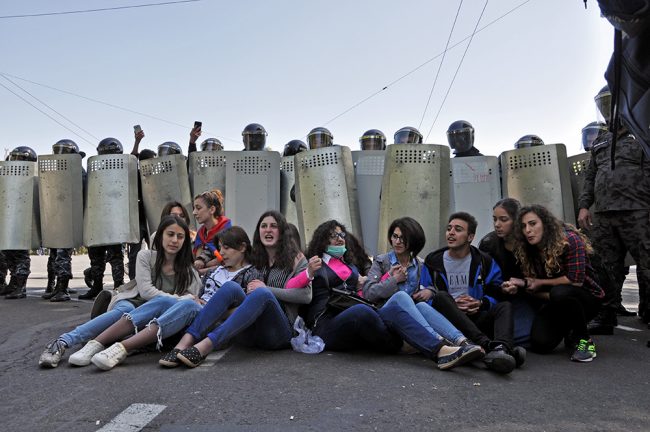
Constitutional reforms
Serzh Sargsyan stepped down as President on 9 April as part of ongoing constitutional reforms to change the government from a semi-presidential to a parliamentary system.
Having previously played down suggestions he would run again for political office, Sargsyan announced on 11 April that he would seek the position of Prime Minister, now the most powerful post in the country. On 17 April, he was sworn in as PM by Armenia’s parliament, the National Assembly.
Protests loosely organised around the slogan ‘No to Serzh’, have been held since March, with thousands coming out into the streets daily since 13 April, in what Pashinyan has called a ‘velvet revolution’.




